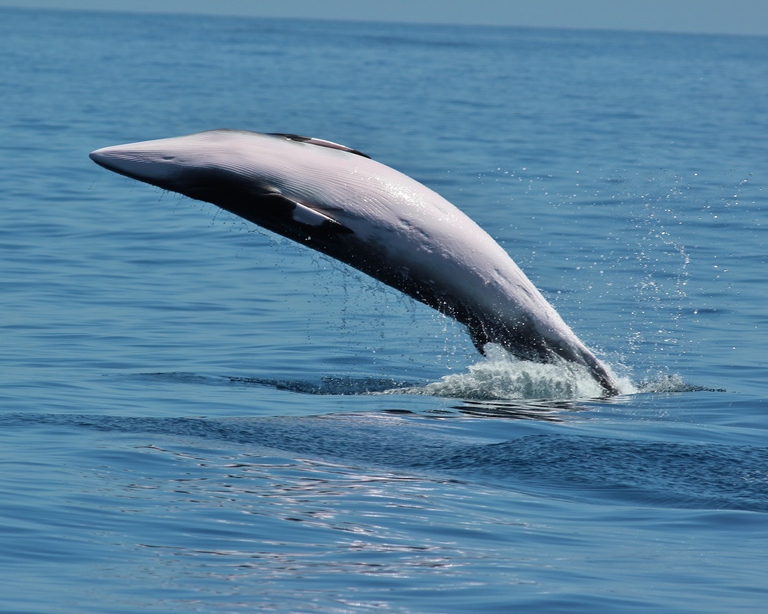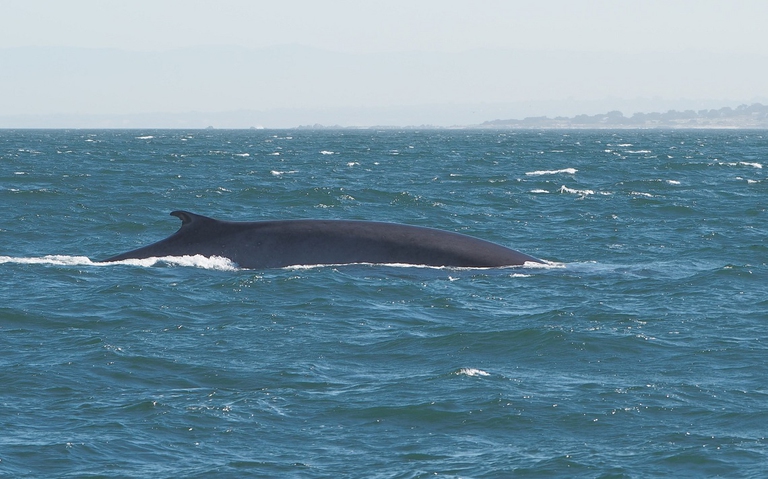
Our species took its first steps in a world covered in trees. Today, forests offer us sustenance, shelter, and clean the air that we breathe.
For the first time in seventeen years, Iceland’s two main whaling companies won’t resume whale hunting. The announcement concerns this year’s season but could carry into the future.
Whilst campaigners the world over fight to formally end whaling after a century of this unsustainable practice, Japan, Norway and Iceland still hunt cetaceans every year. In 1986, the International Whaling Commission (IWC) imposed a worldwide moratorium on commercial whaling. Despite initially choosing to respect the ban, the Icelandic government allowed the country’s two major companies in the sector to resume hunting two species: the fin whale (Balaenoptera physalus), officially classified as “vulnerable” on the IUCN Red List, and minke whale (Balaenoptera acutorostrata).
Every year, the companies are allowed to slaughter up to 229 minke and 154 fin whales using explosive harpoons. However, no whales will be killed in Icelandic waters this year, and perhaps in the future too, a signal that this barbaric and cruel practice may be drove into extinction.
Iceland has therefore canceled all such expeditions for this year. Hvalur, its main whaling company, confirmed it won’t be hunting any whales for the second year in a row. Ip Utgerd, which mostly targets minke whales, declared on the 24th of April that it will abandon the practice entirely.
Companies profiting from the killing of other beings can’t be expected to make decisions based on moral values. Instead, the choice to abandon whaling this year is the result of careful financial calculations. Gunnar Jonsson, CEO of Ip Utgerd, declared that the practice isn’t economically sustainable in Icelandic waters. He claimed hunting to have “become too expensive after a no-fishing coastal zone was extended, requiring whalers to go even further offshore”. He added that his company would focus on sea cucumber fishing instead.
#BREAKING No fin whaling in #Iceland this summer. Hunting fleet stays in port for 2nd consecutive year. #excellent #whales pic.twitter.com/jnS6l6spH3
— Hard To Port (@hardtoport) April 24, 2020
In a similar fashion, Hvalur attributed its choice to Japanese competition, which is particularly strong also because companies there receive government subsidies. The Icelandic operation has also been affected by difficulties in exporting whale meat and coronavirus restrictions. In fact, Japan’s introduction of stricter requirements for imported whale meat has had a significant impact on the market for Icelandic whale meat (as in fact most people in Iceland don’t actually consume it). In addition, this food product requires careful, therefore expensive, examination prior to consumption due to the fact that whales are particularly vulnerable to environmental contamination.
Rob Read, director of Sea Shepard UK, a group that has been documenting Hvalur’s whale activities since 2018, was delighted to hear the news. “Now is the time for Loftsson to hang up his harpoons and for Iceland to become an ethical whale watching not whale killing nation”.
Just over a year has passed since Fisheries Minister Kristjan Juliusson announced Iceland’s five-year plan to impose a hunting quota of up to 2,130 whales. The practice may eventually be banned entirely also due to international pressure. Great merit should also be attributed to the country’s citizens: a growing number of people are boycotting whale meat and don’t support the industry. According to a consumer survey, only 3 per cent of the population consumes it on a regular basis.
Similarly to Japan, Iceland has also found whales to be more remunerative when they’re alive. Whale watching is one of the country’s major tourist attractions, bringing more than 200,000 tourists a year and generating over 11 million euros in income annually. The freezing Icelandic waters are one of the best places for this activity and up to 20 different kinds of cetaceans, including humpback whales, sperm whales and orca can be spotted there. The hope is that Icelandic whales, already threatened by climate change and the damage caused by industrial fishing, can forever swim freely without fear of being slaughtered.
Siamo anche su WhatsApp. Segui il canale ufficiale LifeGate per restare aggiornata, aggiornato sulle ultime notizie e sulle nostre attività.
![]()
Quest'opera è distribuita con Licenza Creative Commons Attribuzione - Non commerciale - Non opere derivate 4.0 Internazionale.
Our species took its first steps in a world covered in trees. Today, forests offer us sustenance, shelter, and clean the air that we breathe.
Poachers in Africa are encroaching on wildlife land and killing rhinos in travel hot spots now devoid of visitors due to the coronavirus pandemic.
Actor and environmental activist Leonardo DiCaprio has contributed two million dollars to a fund to protect Virunga National Park in Congo from threats such as terrorism, the coronavirus and poaching.
The relationship between the coronavirus and wildlife is complex: while the pandemic may lead to a reduction in the illegal trade in wild animals, it may also encourage it in other respects.
The largest coral reef in the world is severely threatened by climate change, but researchers are developing strategies that could contribute to saving the Great Barrier Reef.
NGO Free the Bears has opened a mountain sanctuary for moon bears in Laos. With the government’s help, it aims to close all bile farms by 2022.
Seychelles have extended its marine protected area, which now covers over 400,000 square kilometres, an area larger than Germany.
The tapir was reintroduced into Brazil’s Atlantic Forest, the country’s most at-risk ecosystem. The species can play a key role in the forest’s recovery.
One of Africa’s last and largest “tuskers”, Tim the elephant, died from natural causes after roaming Amboseli National Park for five decades and surviving multiple life-threatening attacks.









